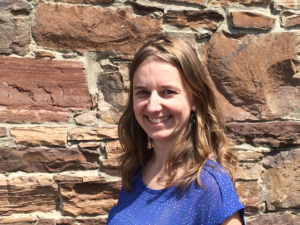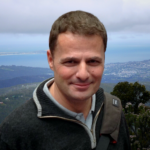
This article, the first in a series of four that focus on climate change, is an invitation to AI practitioners to help shift the paradigm of “fighting the climate crisis” to one of deep transformation so that we, our organizations, our communities, the world at large, and the more-thanhuman world can learn to live with the undeniable and irreversible changes occurring on our planet. “Living with” does not mean accepting passively what is happening. Rather, it calls us to acknowledge, adapt – and imagine new ways to thrive.
Alexandra Arnold| USA

As coaches, consultants, educators, leaders and change agents, we are “change experts”. What better position to be in to shape the future of our world? Sure, it’s an enormous responsibility. But, with AI at our side, we are well equipped to step up to it. For a start, we know the benefits of bringing all voices into the room.
In their recently published book, Ecological and Climate-Conscious Coaching: A Companion Guide to Evolving Coaching Practice (Whybrow, Turner, McLean, 2022), members of the Climate Coaching Alliance discuss the “eco-phase cycle”, originally developed by Peter Hawkins. This model suggests that each of us finds ourselves in one of five eco-phases: eco-curious, eco-informed, ecoaware, eco-engaged or eco-active. Indeed, our journey to living with climate change begins with curiosity, and by listening to more than just one story.
Listening to science
There is a lot of data available, varying opinions, and all sorts of messages – from “it’s too late anyway” to “someone else will fix it”. We could talk about degrees, pounds of carbon dioxide, or number of years before we reach one catastrophe or another. How much do we really need to know?
The causes and effects of climate change reported by the United Nations can be summarized in one paragraph:
The world is losing species at a rate 1,000 times greater than at any other time in recorded human history. Melting ice sheets cause sea levels to rise, threatening coastal and island communities. Cyclones, hurricanes, and typhoons feed on warm waters at the ocean surface and destroy homes and communities, causing deaths and huge economic losses. Changes in the climate and increases in extreme weather events are among the reasons behind a global rise in hunger and poor nutrition. Wildfires start more easily and spread more rapidly when conditions are hotter. Changing weather patterns are expanding diseases, and extreme weather events increase deaths and make it difficult for health care systems to keep up. Climate change increases the factors that put and keep people in poverty.
Given the enormity of what we are facing, it is easy to go from denial to despair, or to listen to lots of facts without fully integrating them. Yet it is important that we “not only listen to the science with our conceptual mind, but also listen with our hearts and guts and whole being”. (Whybrow et al., 2022).
Listening inside
In any form of change, and for a new way of life to emerge, we must first acknowledge what has been lost or must be left behind; this isn’t a logistical problem, it’s an emotional one.
Climate grief, or ecological grief, is now recognized by the American Psychological Association. This Canadian Climate Institute article (Cunsolo & Rezagian, 2021) breaks it down into four types: grief from acute disasters; grief from slow-onset changes like loss of ice, habitat or species; vicarious grief when witnessing suffering in faraway places; and anticipatory grief, which is closely tied to eco-anxiety. There is no shame in adding to this list: grief for a way of life, for the comforts, conveniences, habits and traditions that are no longer sustainable, and the realization that change is inescapable.
“Climate grief differs from other forms of grief in that rather than one loss, we experience multiple losses, past, current, and anticipated. Where the pain of a more traditional form of loss may lessen over time, climate grief may keep returning, ever sharp and differently textured, with each new loss. If we can learn to grieve well – making space for it, and knowing that it will not destroy us – we can accept grief as a familiar friend, and that acceptance might allow us to experience a deeper connection to our world. If we can do that, then there is a gift in this time of sadness and anxiety; in surrendering to grief, we can connect to love.” (Cox & Flynn, 2022)
According to Neena Verma, author of Grief, Growth, Grace: A Sacred Pilgrimage (2021), grief is an inevitable part of life, and so is “the human capacity to grow strength in the garden of sorrow and seek the path of deep growth, transformation, and grace.” Death and growth are not separate or consecutive. They are intertwined. What would it look like to allow death and grief to also hold beauty and hope? In some parts of the world, dying leaves in autumn are celebrated for their vibrant colors. In our gardens, it is decaying organic matter that provides nutrients for new food to grow.
In nature, death is everywhere. What else can we learn from the very world we are trying to save?
Listening beyond
When reconnecting with our deeper emotions, we are reconnecting with our humanness. As human beings, we are part of the greater living system of our planet. How do we make sure that our non-human neighbors always have a seat at the table? In programs such as the Dialoguing with the Earth certification, founded by ICF-accredited coach Lilith Joanna Flanagan, you can learn to dialogue and partner with nature to create a collaborative cohabitation with the earth.
Another way to invite the perspective of the natural world in our work is with the Council of All Beings practice, based on the work of Joanna Macy, where participants are chosen by a non-human life form and speak on its behalf in front of a council in ways that “grow the ecological self, for it brings a sense of our solidarity with all life” (Macy, 2017).
To access knowledge from beyond our limited human experience, let’s acknowledge just how young we are in comparison to other species and within the history of this planet. There is a clash between our short-term self-focus and the much longer timeframe that needs to be considered in the context of climate change, like the seventh-generation principle found in Indigenous wisdom.
To stretch your time horizon, you may take a Deep Time Walk (2022), a recording of the earth’s 4.6-billion-year history to be listened to on a 4.6 km walk. In this unique experience, science and poetry merge to share the story of how our planet formed, of how life evolved and finally, in the last one-fifth of a millimeter of that walk, of the devastating impact of humanity since the industrial revolution
When we listen to the natural world we are part of, the deep emotions inside us, or the news around us, we bring a multiplicity of voices into the room, and we take the first step into living with climate change.
REFERENCES Cox, C. and Flynn, S. (2022). Climate Change Coaching – The power of connection to create climate action. Open University Press. https://climatechangecoaches.com/our-book/ Verma, N. (2021) Grief, Growth, Grace: A Sacred Pilgrimage. Rupa Publications India. Whybrow, A., Turner, E. and McLean, J. (2022) Ecological and Climate-Conscious Coaching: A Companion Guide to Evolving Coaching Practice. Routledge.
Intro by Keith Storace


